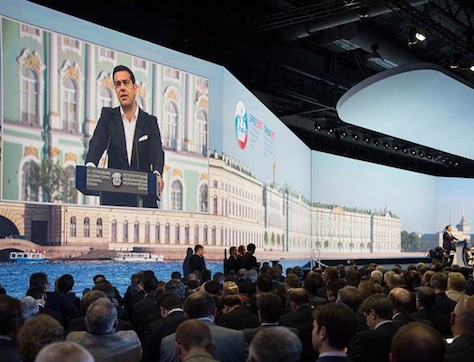
Iceland is a tiny country of just barely more than 300,000 people, but it took a famously outsized role in the earliest stages of the 2008 financial crisis when all three of its private banks failed in rapid succession. 
Now, Icelandic voters will go to the polls this Saturday for a six-question referendum to determine whether to reform the country’s constitution and, if so, how.
In contrast to Ireland, where the government nationalized and assumed the debts of its failing banks, Iceland simply allowed its banks to fail. Although growth has resumed in Iceland (3% in 2011) and unemployment is now falling (hovering at around 6.7%), the Icelandic economy remains quite subdued in contrast from the heady days when Reykjavík was angling to become one of Europe’s investment banking capitals.
In the wake of that crisis, Icelanders have weighed many different reforms, ranging from joining the European Union to joining the eurozone to adopting Canada’s dollar as its currency. The former prime minister, Geir Haarde, faced charges in front of a special session of the Alþingi (Iceland’s parliament and, given its formation in AD 930, the oldest parliament in world history), and was convicted on one minor charge, although he has faced no formal punishment, aside from widespread disapproval from Iceland’s citizens.
In the same manner, the constitutional reform process, which culminates in the October 20 referendum, also emerged from the crisis. Reform was one of the key promises made by the broadly leftist coalition under prime minister Jóhanna Sigurðardóttir that took power in 2009 — the coalition includes the Social Democratic Alliance (Samfylkingin), the Left-Green Movement (Vinstrihreyfingin – grænt framboð), the Progressive Party (Framsóknarflokkurinn) and other small parties. The 2009 election, which followed riots in the typically tranquil island nation, saw the once-dominant Independence Party (Sjálfstæðisflokkurinn) kicked out of power after 18 years in government.
As such, a Constitutional Council of 25 Icelandic citizens has been working on proposals for constitutional reform — including by soliciting input on social media — and it presented a draft constitution to the Alþingi in 2011, which voted to refer the draft constitution to the advisory referendum to be held Saturday. The constitution would replace the version adopted in 1944 when the country voted to become independent from Denmark. It would essentially perpetuate the current government structure that includes a largely ceremonial president, a prime minster who heads the government and a president of the Alþingi, but enact other reforms.
Several of the key issues include the removal of the Lutheran Church as the ‘state church’ of Iceland, the addition of more direct democracy rights, the addition of more information rights for citizens, and the inclusion of a provision that would strengthen state control over natural resources not currently under private ownership.
The new constitution is not without controversy — Iceland’s Supreme Court initially invalidated the election of the 25 individuals who form the Constitutional Council, although the Alþingi ultimately upheld their election. Furthermore, the opposition center-right Independence Party voted against the draft constitution when presented to the Alþingi, and the newly reelected president, Ólafur Ragnar Grímsson, who has served as president since 1996, opposes the constitutional changes because he says they do not garner support from across the political spectrum. Continue reading Iceland continues to crowd source constitutional reform with six-question referendum →
![]()

